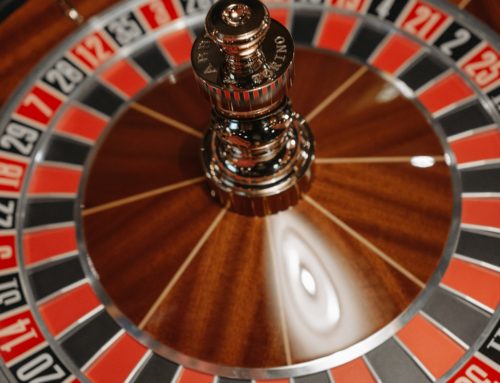Are you in control of your destiny?
November 30, 2020
How much do you feel in control of your own destiny? Do you see your successes as the results of your efforts? What about your failures? This month I’m going to look at a concept that psychologists call ‘locus of control’ – whether you see control of your life being internally or an externally driven. This is something which is on a continuum but let’s look at the two extremes.
|
High internal locus of control |
High external locus of control |
|
|
|
|
|
|
The downside of a strong external locus of control
People with a strong external locus of control feel very vulnerable to what life throws at them. Unsurprisingly, this can make them more anxious and more prone to depression. If bad things (abuse, neglect, wartime atrocities) happen no matter what you do, eventually you stop trying to influence what happens to you. This phenomenon is called ‘learned helplessness’. It stops people trying to change things for the better even when there are opportunities to do so. The good news is that, given that it is learned, it can be unlearned, though if it’s rooted in childhood experience, I won’t pretend that it’ll be easy.
The downside of a strong internal locus of control
While it is generally healthier to have an internal locus of control, you can take it too far. Believing you can control every aspect of your life is a narcissistic fantasy. For you to control everything, the world would have to revolve around you. It leads to the kind of unhelpful positive thinking (“Believe in yourself. You can achieve anything”) that I’ve railed against before and can make it harder to deal with failure. At its most pernicious, it can leave people feeling they’ve not tried hard enough in their ‘battle’ with cancer.
Internal or external locus of control, we could probably all do with remembering the Alcoholics Anonymous serenity prayer:
“Grant me the serenity to accept the things I cannot change, the courage to change the things I can, and the wisdom to know the difference”
Control in a Covid era
What 2020 has taught us is that none of us is totally in control of our destiny. We’ve all moved a little more towards an external locus control because we’ve had to. This has had some benefits. If your business failed in 2019, you may have felt a lot of shame because you felt responsible for that failure. If it failed in 2020, it still hurt but you had plenty of company and clear explanation.
What I’m interested in is what we do in day-to-day life when we feel control slipping away from us. I don’t have research evidence for this but here are six patterns I’ve noticed. Each of them has an upside and can be also be taken too far.
1. Taking control of the situation
This can be a great response. It shows leadership and sometimes is the kind of heroic action that saves the day. When it goes too far, you try to control others and can become dictatorial or combative (going to multiple courts trying to prove an election was rigged, for example).
2. Controlling risk
We are currently faced with many risks – risks to our health from the virus and risks to our income or financial security being two of the key ones. It is wise to manage these risks but taken too far you may become so fearful that you stop doing anything. Never going out, never spending money, taking no business decisions can be quite a restrictive way to live. It also brings with it less obvious risks, like the risk to your mental and physical health of sitting looking at a screen all day or the risk of losing touch with people or with trends in the market.
3. Gathering information
Information is always useful and in times of change and uncertainty it’s important to be well-informed in order to make better decisions. There are two ways this can go too far. Firstly you can get hooked on finding out information. If you’ve found yourself obsessively watching the news or tracking R numbers, you may be falling into this trap. Constantly marinating yourself in negative news is not good for your wellbeing. If you were already cautious, then information gathering can be a strategy for putting off making a decision.
The second risk is that you start getting your information from the wrong sources. If you’ve found yourself ‘doing your own research’ by watching some dodgy YouTube videos in order to argue with an epidemiologist on Twitter, you might want to check the veracity of your sources.
4. Interpreting events
This, I must confess, is one of my favourite routes to regaining a sense of control in an uncertain world. If I can make sense of what’s going on, that helps the chaos to abate. I interpret events through the lens of psychology. It’s what I’m doing right now. I seem to share this tendency with historians, newspaper columnists, sociologists and other academics who make sense of the world through their particular lenses.
There are a number of ways this can go too far. The first is getting too wedded to your own interpretation of events. It’s always important to remember that there are other interpretations. The second is that, having reduced anxiety by making sense of the world, you don’t actually do anything. It’s a bit of a bystander’s pastime.
There is an even greater danger, particularly if you’ve been gathering information from strange places, which is interpreting the world through the lens of conspiracy. The world can be a scary, chaotic place. Many conspiracy theorists would rather believe that there is a shadowy cabal of international financiers/celebrity paedophiles/lizard people who control everything than accept that bad things can happen at random.
5. Taking control of your environment
If all around you is chaos, it can be soothing to have a neat desk or an organised bookshelf. If you found yourself with an urge to clear out your wardrobe or sort out the under stairs cupboard during lockdown, this might be one of your ways of regaining a sense of control. It goes too far when it moves into OCD-like levels of control over your physical environment.
6. Taking control of yourself
A sensible piece of psychological advice is that if you can’t control a situation, you can at least control your response to it. Good emotional regulation and developing habits which maintain your wellbeing are two examples of this. But even this can go too far. Emotional repression, compulsive exercising and, at the extreme, eating disorders are manifestations of a need to exert strict control over yourself, often in response to a lack of control in the world.
The restrictions on our autonomy that we’ve experienced this year have been difficult and we all have our own ways of adapting. It’s worth reflecting on how well your coping strategies are working for you. If you’d like someone to talk that through with, do get in touch: caroline@carolinegourlay.co.uk
Photo credit






Another great article, Caroline. What particularly resonated with me was your reference to ‘unhelpful positive thinking’. This modern mania for achieving rather nebulous states like ‘true inner greatness’ smacks of the worst excesses of the ‘self-help’ movement. Like you I got so irritated by it that it actually was the subject of my own blog which I uploaded last Friday, and which can be found here: https://mhconsult.online/im-average-social-media-isnt-helping/
I was extremely pleased to discover this page. I want to to thank you for ones time due to this wonderful read!! I definitely appreciated every part of it and I have you bookmarked to look at new information on your web site.